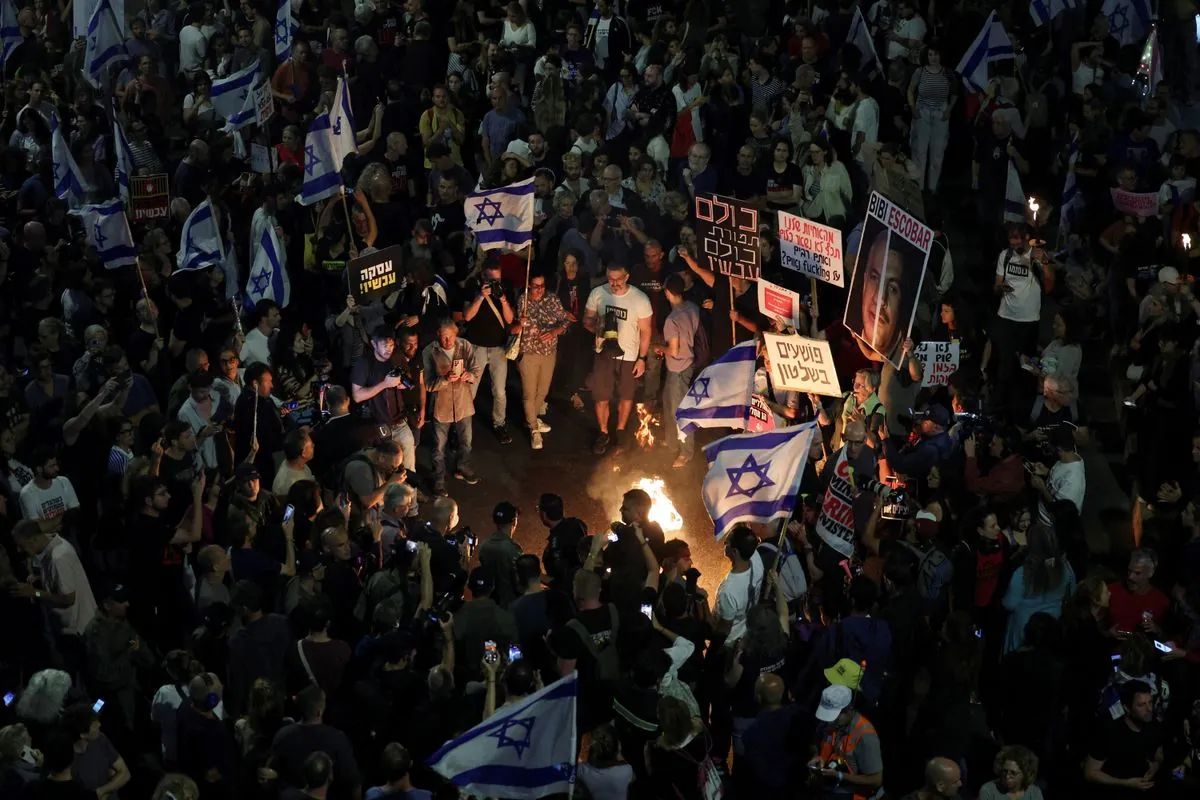Hamas Executes Six Israeli Hostages, Shaking Netanyahu's Government
Six Israeli hostages killed by Hamas in Gaza, potentially destabilizing Israel's coalition. The tragedy, reminiscent of the 1972 Munich massacre, intensifies pressure on Netanyahu to negotiate a ceasefire and secure hostage releases.

The recent execution of six Israeli hostages by Hamas in southern Gaza has sent shockwaves through Israel, potentially destabilizing the nation's coalition government and intensifying calls for an end to the 11-month conflict. This tragic event, occurring approximately 18 months after the initial Hamas assault, bears a chilling resemblance to the 1972 Munich Olympics massacre.
Hamas fighters reportedly shot the hostages individually, leaving their bodies in an underground location for advancing Israeli Defense Forces (IDF) to discover. The victims had endured captivity for over a year and a half, with their final moments likely filled with unimaginable distress.

This incident has sparked widespread outrage across Israel. A one-day general strike was scheduled, while hostages' families, opposition figures, and even Defense Minister Yoav Gallant have criticized Prime Minister Benjamin Netanyahu for impeding ceasefire negotiations.
The tragedy is particularly poignant as three of the six victims, including Hersh Goldberg-Polin, a young US-Israeli national who survived the initial attack with severe injuries, were slated for imminent release as part of ongoing negotiations.
"A deal is more important than anything else. We are no longer one people; we are camp against camp ... we need to bring back the State of Israel. We are getting body bags instead of a deal."
This statement reflects the growing divide within Israeli society and the increasing pressure on the government to prioritize hostage releases.
The Munich massacre of 1972, which resulted in the deaths of 11 Israeli Olympians, led to significant changes in Israel's approach to hostage situations. It established an unwritten social contract that no Israeli hostage would be abandoned. This principle is now being severely tested.
Despite mounting pressure, Netanyahu has remained steadfast in his position. However, his political standing is precarious, as he has maintained his coalition by appealing to far-right factions. The potential resignation of key figures like Gallant or large-scale public protests could lead to the government's collapse.
Public opinion in Israel overwhelmingly favors a ceasefire that would ensure the safe return of remaining hostages. The recent killings have intensified this sentiment, potentially forcing Netanyahu to reconsider his stance and reaffirm Israel's commitment to its unwritten social contract.
The Munich massacre, which occurred 52 years ago, shares several parallels with the current crisis. Both events involved the targeting of Israeli civilians, attracted global attention, and had significant political ramifications. The 1972 incident led to the creation of Germany's elite counter-terrorism unit, GSG 9, and inspired changes in international security protocols for major events.
As Israel grapples with this latest tragedy, the nation faces a critical juncture. The coming days may determine whether the government can withstand the mounting pressure or if a significant shift in policy is imminent.



































